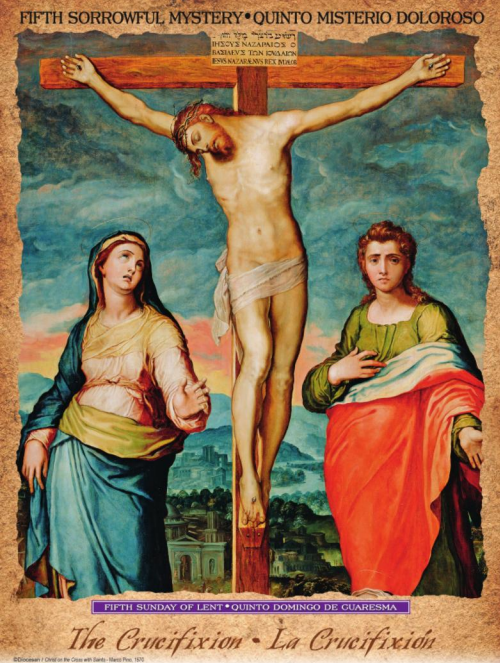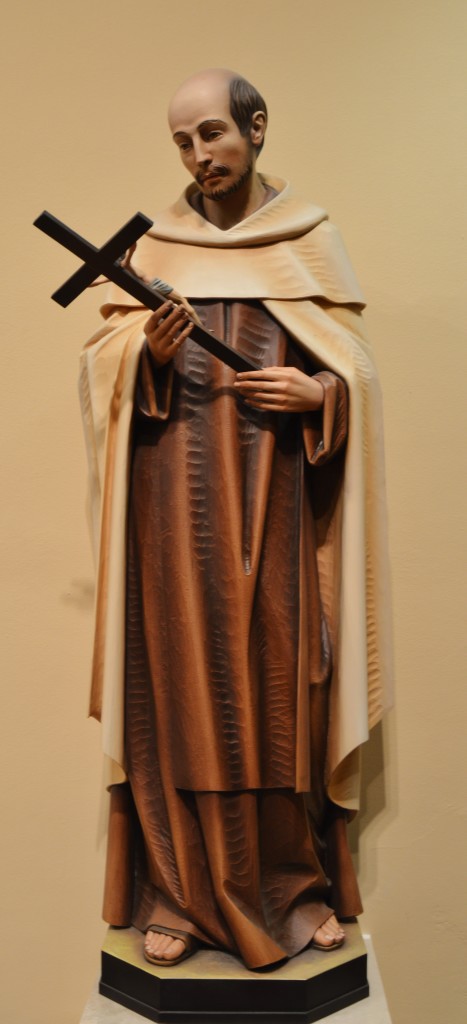
Sacrifice, purity, endurance



The higher he ascends
the less he understands,
because the cloud is dark
which lit up the night;
whoever knows this
remains always in unknowing
transcending all knowledge.
To anyone first experiencing it, the obscure sense in prayer of losing a hold on God, and even, strangely, of not knowing him, may appear to be a sign almost of a spiritual illness. But the experience is not an unhealthy state, and it is important that this is realized without much delay. A painful sense of incomprehension toward God is an aspect of deeper interior prayer. There are clear reasons for this experience of darkness, even as it causes confusion in prayer. The disproportion between the nature of God and our own limited human nature becomes an experience in prayer to the degree that our soul draws nearer to God. Even as God loves us in great tenderness and mercy, there remains a measureless chasm between God and our soul.
‘St John of the Cross: Master of Contemplation’ by Father Donald Haggerty


THERE is still another manner of answering the difficulty which relates to the fear we may have of losing esteem…if we truly have the spirit of humility, we ought to rejoice at being known to be as weak as we are; and therefore we need no other reason than this to move us to declare our defects and bad inclinations…. For true humility not only makes us know and despise ourselves, but it also makes us be glad to be known and despised by others. It is true that the obligation of giving an account of conscience was established amongst us for other ends; but though there should be no other advantage to be derived from it than that of exercising ourselves in the practice of humility, this alone ought to be sufficient to engage us punctually to satisfy this obligation. And if we have not those sentiments of humility which we ought to have, but on the contrary, desire to be esteemed, and to be promoted to the most considerable employments, I do not at all wonder that upon this account we let ourselves be seduced by those vain fears which pride and ambition are wont to suggest, and that we think thus within ourselves: if my defects come to be known…they will have no more consideration for me, and will never advance me to any extraordinary employments, but I shall always remain in contempt and oblivion. Many great servants of God have attributed to themselves not only defects, but even considerable sins, for fear that any one should cast their eyes upon them to raise them to any great dignities in the Church; but he who, on the contrary, endeavors to hide his true faults that others may have a better opinion of him than he deserves, and consequently advance him to great employments, is far from resembling those I speak of, and clearly manifests that he has in his heart no feeling at all of humility.
‘The Practice of Christian & Religious Perfection’ written by Father Alphonsus Rodriguez


So it is with us. By sin we are misshapen. The image of God in us has been deformed, and the disfigurement has hardened in the clay. As long as we are content with our shape, the attempts of the potter to refashion us and to transform our ugliness will seem very threatening and frightening to us. Recall what we said earlier about knowledge of God and knowledge of self going hand in hand. But, as we begin to realize what we really are and what we might be, the breaking which is necessary for transformation, while still painful, is no longer threatening. As we grow a bit more we even come to desire His breaking because of the longing to become like him which the Lord of love has implanted deeply in us. We want the Cross because we have glimpsed the glory to which it leads. We can understand what made Paul say: “I long to be freed from this life and to be with Christ, for that is the far better thing” (Ph 1:23).
When the Well Runs Dry: Prayer Beyond the Beginnings


“Love consists not in feeling great things,” says St. John of the Cross, “but in having great detachment and in suffering for the Beloved,”
In some way, one must develop the habit of going from a mental activity, corresponding to our clear awareness, to what we feel, what we mentally recall, imagine, sense in our body or in our psyche, to a spiritual life where everything is apparently abolished.
This transfer is not easy: it is but a variation on the theme which is central to our study, the descent from Jerusalem to Nazareth; Jerusalem, the image of mental life as “religious” as one could wish, as rich as one could hope, and Nazareth, the image of a spiritual life, detached, silent, obscure. No, this transfer is not easy but, fortunately, as the angel said, “Nothing is impossible with God” (cf Lk 1:37).
When one senses his presence, thanks to Mary, Joseph appears to me to be the master of this delicate transfer.
People will perhaps be surprised to know that I do not often address prayers to Joseph, while I am deeply aware that I pray only in him. I do think of him (what could my thinking be focused on?) but he teaches me, precisely, the art of not thinking “in the human way,” a way which so often saddened Jesus when he was with his apostles (cf Mt 16:23).
Let us consider an example: the more someone is dear to us, the less we have to think of that person. We must reach him on a spiritual level whether he is present or absent, and not through imagination, daydreams or a set of impressions we interpose. The mental faculty must be at the service of the operation with the greatest discretion possible: it must not act as a screen, capturing, our arresting, and all the more so, distorting. We must realize that unless a kind of miracle takes place, things are bound to be so.
The human mental faculty is intrusive and, moreover, it is falsified most of the time, except in a tiny child and in those who end up by being like children after a long period of purification. Never were Jesus’ words so true: “No one is good but God alone!” (Lk 18:19). Human imagination, memory, feelings and the rest are a field of darnel dramatically mixed up with the good grain and it is preferable that we leave it so, as Jesus says. The more the affective aspect of our nature is unleased in what we call love or its opposites (anger, indignation, jealousy, fear, etc.), the more the mental aspect becomes delirious, tyrannical, dangerous, the more it risks falsifying objective reality.
What shall we say about fixed ideas, obsessions and other analogous difficulties which are so dramatically widespread?
Joseph teaches us the supreme art of dying to our mental life in order to allow ourselves to be born again to a way of perfection which is akin to that of Mary and is only remotely similar to what we could have known previously. Let us, for some time, try the experiment of never deliberately recalling the human being we love very much; we will then begin to realize that love comes from much beyond, from a much greater depth than our human heart alone, our feelings, our judgment, whatever qualities they may have. We will experience a freedom so new, an insight, a loving force so ingenious that we will no longer be able to deny that all comes from elsewhere.
St. John of the Cross, this accomplished son of the Carmel of the house of Mary and Joseph, had said as much but it was difficult to believe him.
“Take no heed of the creatures if thou wilt keep the image of God clearly and simply in thy soul, but empty thy spirit of them, and withdraw far from them, and thou shalt walk in the Divine light, for God is not like to the creatures.”
‘Saint Joseph: Shadow of the Father’ written by Father Andrew Doze



The LORD spoke to Nathan and said:
“Go, tell my servant David,
‘When your time comes and you rest with your ancestors,
I will raise up your heir after you, sprung from your loins,
and I will make his kingdom firm.
It is he who shall build a house for my name.
And I will make his royal throne firm forever.
I will be a father to him,
and he shall be a son to me.
Your house and your kingdom shall endure forever before me;
your throne shall stand firm forever.'”

St Joseph by El Greco

Recent Comments